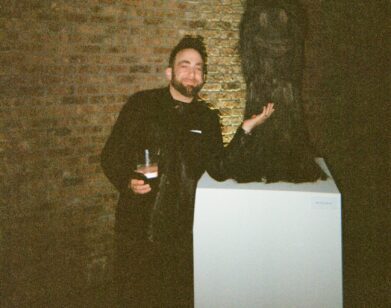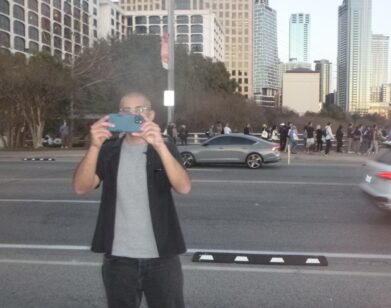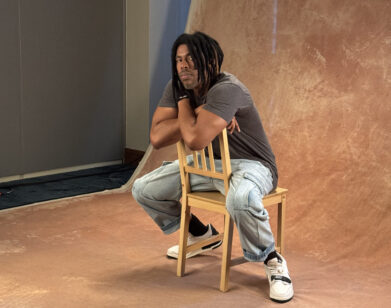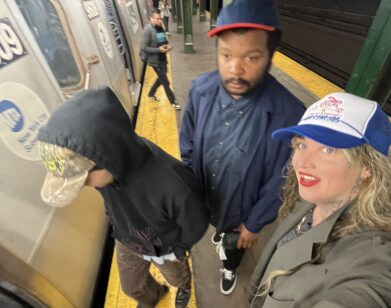godspeed!
Cooper Raiff and Jay Duplass on Shithouse, Success, and Silver Linings
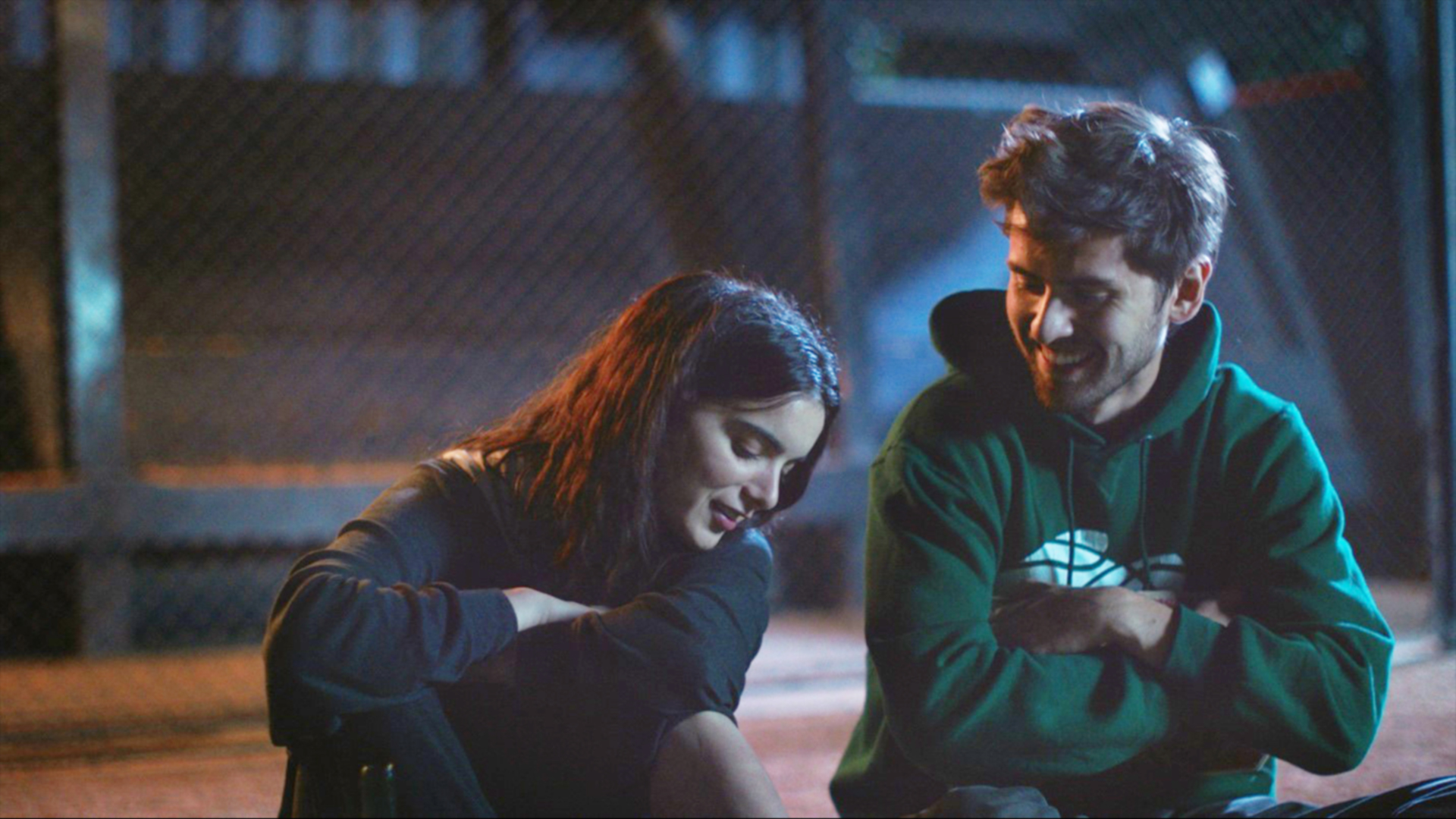
Cooper Raiff and Dylan Gelula in Shithouse.
Most college sophomores spend spring break lounging around their parents’ house, swapping blunts with high school friends and catching up on movies. Cooper Raiff decided to make one instead. Shithouse, which won this year’s top prize at the South by Southwest that never was, is the result of Raiff’s week-long staycation at Occidental College, filming around the L.A. campus with his then-girlfriend. The semi-autobiographical film, which follows a freshman (Raiff) and his intimate connection with an RA (Dylan Gelula), is a tender portrayal of first-year anxieties—filmed at a time when students could rub elbows and spill beer on each other’s sneakers, but perhaps strangely more resonant for an era in which they’re confined to dorm rooms, reliant on TikTok and texting to stir intimacy. The 23-year old actor and filmmaker may be stuck inside for now, accepting critical acclaim for his debut from a poster-less bedroom, but he shows no signs of slowing down. As he tells the actor, director, and amateur runner Jay Duplass—who served as Raiff’s mentor after he tweeted a screener at Duplass with the caption “Bet you won’t click on this link!“—he’s sprinting straight toward the finish line.
———
JAY DUPLASS: Well, we both run, or try to run.
COOPER RAIFF: We try to run.
DUPLASS: We don’t do it as much as we want to. I thought we should talk about running or, at least, start there and talk about our bodies, and the general existential crisis of living in 2020 and self-care. I think that relates to the theme of your movie, and also, survival right now, in general. It’s an interesting parallel.
RAIFF: Yeah. We’re all in a shit house right now. When’s the last time you actually ran? Do you remember?
DUPLASS: I just got back from a six-week Southwest odyssey from L.A. to Santa Fe to San Antonio, where my wife’s parents live, and I did some enfeebled running. I did some walking/jogging, but, you know, I’m 47-years-old now. My body is so bent over and encrusted with 12-hours a day of screen time, that it’s getting a little scary. I don’t know if I can run anymore. I’m not sure what’s happening.
RAIFF: I’m not old and in as much pain as you are, but sitting around so much has really weakened my bones, and made me so tired. I don’t remember the last time I ran. But before this ‘rona came knocking, I was really running six miles a day and felt so good about my health. I don’t even know why I stopped, because I have more time, but maybe there’s something about running away from my home, and I know that I can’t run away from my home.
DUPLASS: I was in the same boat. Before corona hit, I was training for the L.A. marathon and I had done a 20-miler, and I was ready to do it. I have no doubt that that event was a super spreader for Los Angeles. I mean, it’s fucking crazy to think about it now, because back then, South by Southwest was the first big cancellation, I think, culturally, at least in our world, which obviously, was a huge hit for you personally with your movie. But they did the L.A. marathon, and I had been training for it for six months to a year, something like that. I just didn’t do it. I just stopped running entirely because I have an immunocompromised kid, and we were preparing for the end of days for a while. And then, we settled into corona, and our lives have fundamentally changed in every way. Everyone just took a hard left turn when it hit, and we were all sort of adapting.
RAIFF: I like having to figure out a new routine. The unknown forces me, at least, to just buckle down and not think about enduring, but just think about what am I going to do every day. Like, what are the five things I’m going to do? And it just so happened that running wasn’t one of those things. So I just stopped. I think I was addicted to running before ‘rona, but now, I’m getting addicted to other weird things, like reading Letterboxd. Have you ever been on that site?
DUPLASS: No. What is that?
RAIFF: Oh my god, I’m totally happy that you just said that. I’m not even going to tell you what it is, actually. We’re just going to move on, and you’re going to pretend like I never said anything.
DUPLASS: Okay, good. I’m super excited about it. Your first movie premiered at South by Southwest and you won the fucking festival. That is a bonkers experience that every young filmmaker dreams of.
RAIFF: But it happened in my room, where I wish I had more posters.
DUPLASS: Yeah. I’m sure you’re questioning if it really happened.
RAIFF: It’s a really interesting question. When you say experience—a lot of it that comes from other people, or from a created space. You go into the space, you fed off of the audience’s energy.And right now, what I meant by it’s all happening in this room where I wish there were more posters up is just like, everything about what’s happening to me is all 100 percent funneled through me and my crappy-looking room. That’s why it feels so unreal, because it’s so isolated right now. Right now, it feels like we’re all just so stunted, and I went back home for a little bit, and I felt I was regressing a ton. And you can’t fall into that place, because after a while, it’s like falling into the place of, “Oh, it’s almost over,” but this is not over. It’s scary.
DUPLASS: It is scary. Being in the presence of other people, that does define experience on some level. Well, even just the concept of making a movie, you work really hard so that you can share this communication device, so that you can have really highfalutin communication with strangers in a movie theater, or in their homes, or whatever it may be. But going to a festival is a way to see it happen to them, and feel it happen to them in a movie theater, and, in a way, complete the feedback loop of what you intended. And you didn’t get to do that at all.
RAIFF: I didn’t get that. Reading things is so different than feeling things that can’t be articulated in a message or an email or something. And also, just hearing laughter is really important, and that’s something that I’m not getting, like, “Dude, I laughed my ass off.” That doesn’t mean anything to me.
DUPLASS: Yeah, exactly. You being there, and knowing that a guy behind you was laughing and crying during your film, and feeling that person do that is incredibly valuable. Are we just bitching right now?
RAIFF: No, we’re not.
DUPLASS: Alright.
RAIFF: This is really therapeutic for me, and I really need to keep talking. What you’re saying about the ultimate form of communication, about such a complicated communication to an audience—I didn’t make it for this moment. I made it to communicate to people who were able to go outside and socialize. And I think there’s a cool new way to look at it. I hope that the movie provides some solace and some comfort in a weird time, but I’ve had to be okay with it, just taking on a whole other meaning and a whole other way of nestling itself into a person’s heart. Because you’re watching movies right now and recoiling. You’re like, “Oh my god, they’re touching each other. They’re touching each other.” But hopefully, I can trust that things are ultimately still the same, and feelings are still the same. That maybe people are a little bit more guarded than they usually are. I think in that sense, the movie will still do the work that I wanted it to do. But it’s tough. This is not the ideal.
DUPLASS: I do think your movie is a warm hug right now. I find that there’s not a lot that I can watch right now because most stuff is reflecting back all the sort of Black Lives Matter, coronavirus, #MeToo pain that we’re all experiencing—which is important, but it’s more pain. Or it’s the fully non-COVID-y materials that just acts like nothing’s weird in this world. That’s also weird because it’s just like, what fucking universe are you living in? But I think there’s something about your movie that is about vulnerability very specifically. But it’s also a love story, and it’s funny. It’s in this nice little weird pocket where it is a warm hug, because I feel like ultimately, what your character is going through on some level in the movie feels like what we’re all going through on some primal level.
RAIFF: Pain.
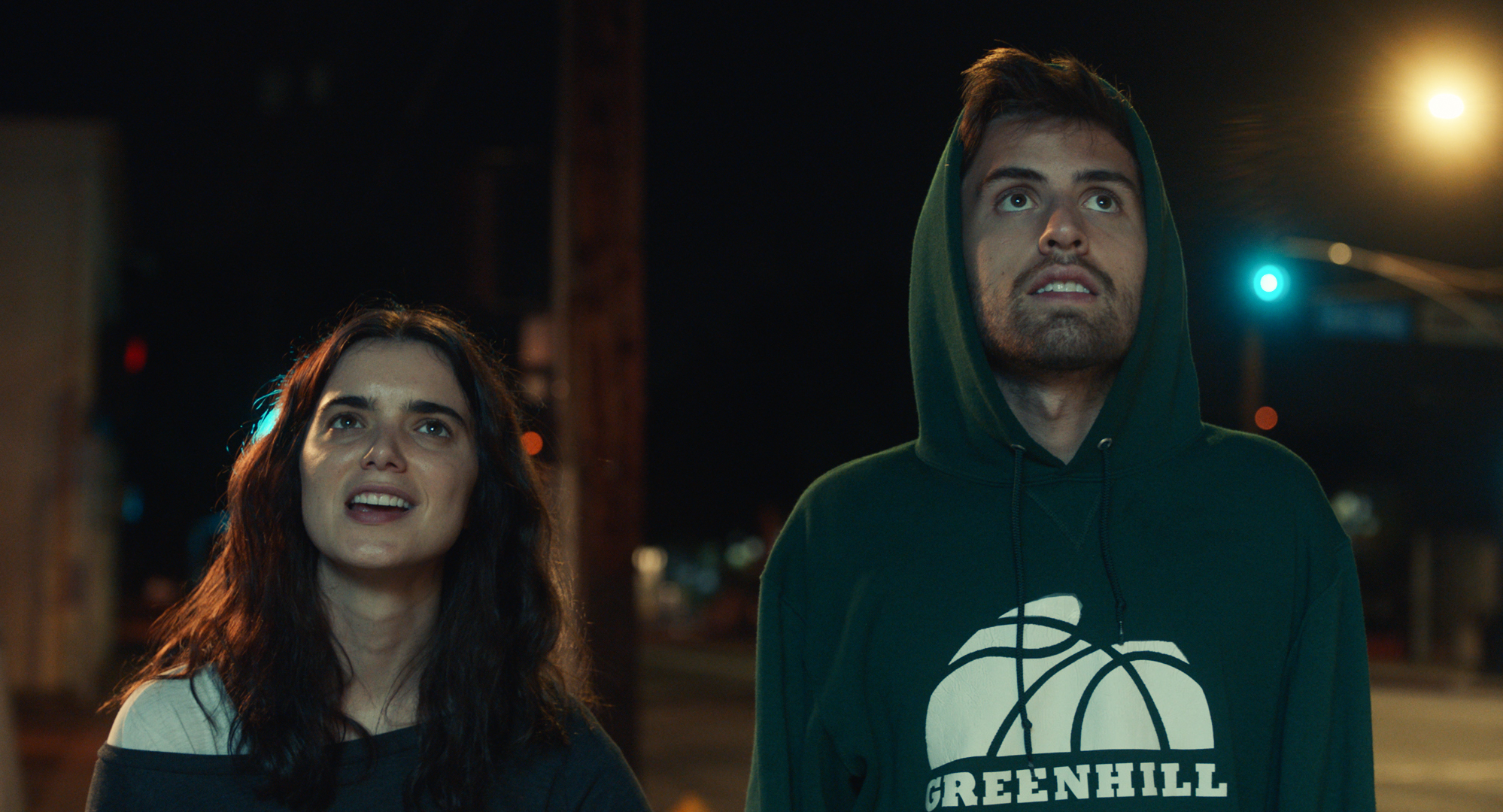
DUPLASS: Yeah, pain. And inescapability and not knowing where to go, what to do. The whole setup of the movie is that your character has lost all the means and ways in his life, and all the fundamental love that he had been in, and he’s just trying to figure out how to navigate. I think it’s so parallel to what we’re all going through.
RAIFF: The other day, I asked my roommate if he wanted to watch that new documentary Totally Under Control, and it’s a movie about corona. He was like, “No.” And I was like, “Okay, fair.”
DUPLASS: It blew my mind when everyone was watching Contagion. I was just like, “What?” That’s probably because of my kid and the fact that I’m a worrier by nature—that’s a worrier with an O, not an A. People are not watching Contagion for fun anymore.
RAIFF: I think people were watching that movie at the very, very beginning when they were like, “Wait, what’s about to happen?” “Is this what’s about to happen?” But now, we’re so deep in it.
DUPLASS: Yeah, who wants more of that? We’re already, like, eyeballs deep in this shit. What is the best thing in your life right now?
RAIFF: That’s a really hard question. The best thing in my world right now is I finally let go of my movie in a really nice way. Like, I know how it’s landed. And I’m still really curious about the way people are articulating things and seeing if I can learn more things. I sometimes like feedback because I feel young and I’m curious, but I had insecurities going into it. I was not envisioning all these people seeing it. I felt very guarded and defensive, but I’ve let that down, and I know how it’s landed with the people that I care about, and also the strangers that I care about. And so, that’s been really, really nice. I feel I can move forward and work on the things I’m working on fully.
DUPLASS: Do you feel like it’s easier to do it because it was well-received? I mean, let’s be honest, it was a really nice pat on the butt from all the coaches of the world that you care about. Almost all. Could you say that’s fair?
RAIFF: I think that has something to do with it. But at the end of the day, I will always be a bit controlling, and I can’t ever release that, but to have that knowledge and those good feelings has allowed me to relinquish the things that I’m holding so close to my chest. Because you realize it’s not close to your chest anymore.
DUPLASS: Right. It doesn’t belong to you anymore. It belongs to everybody else.

